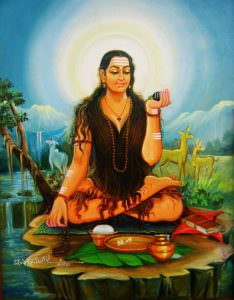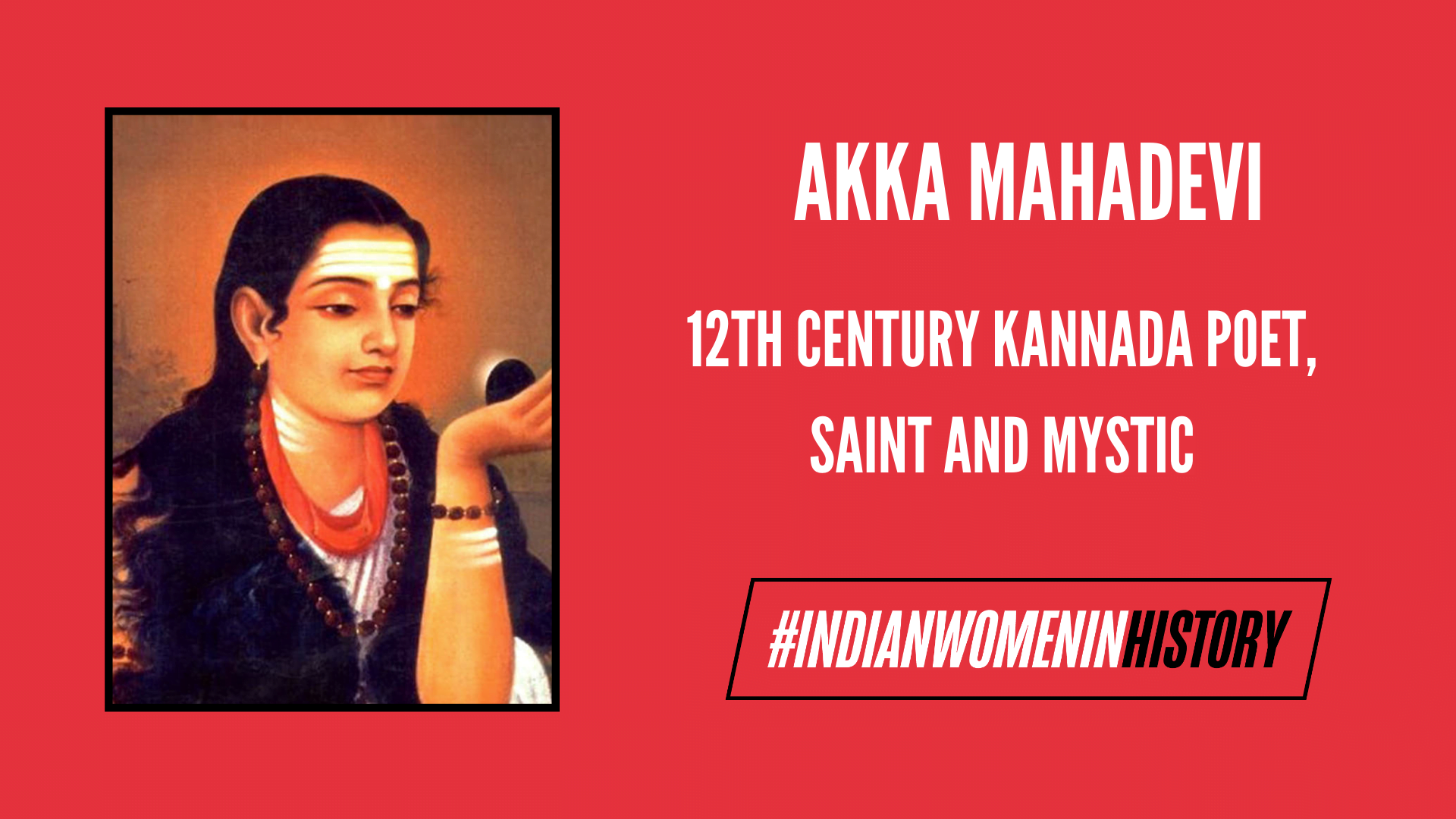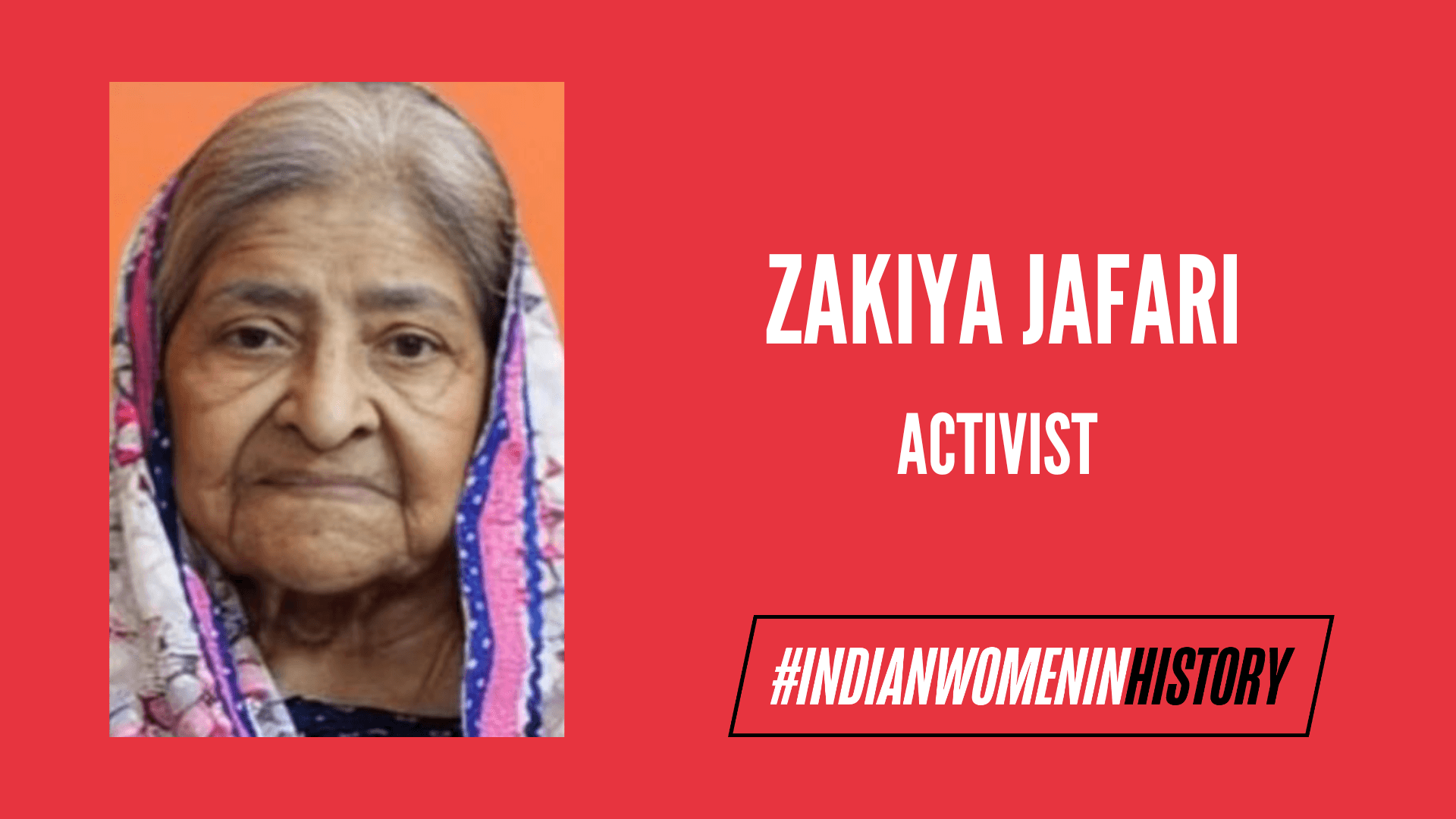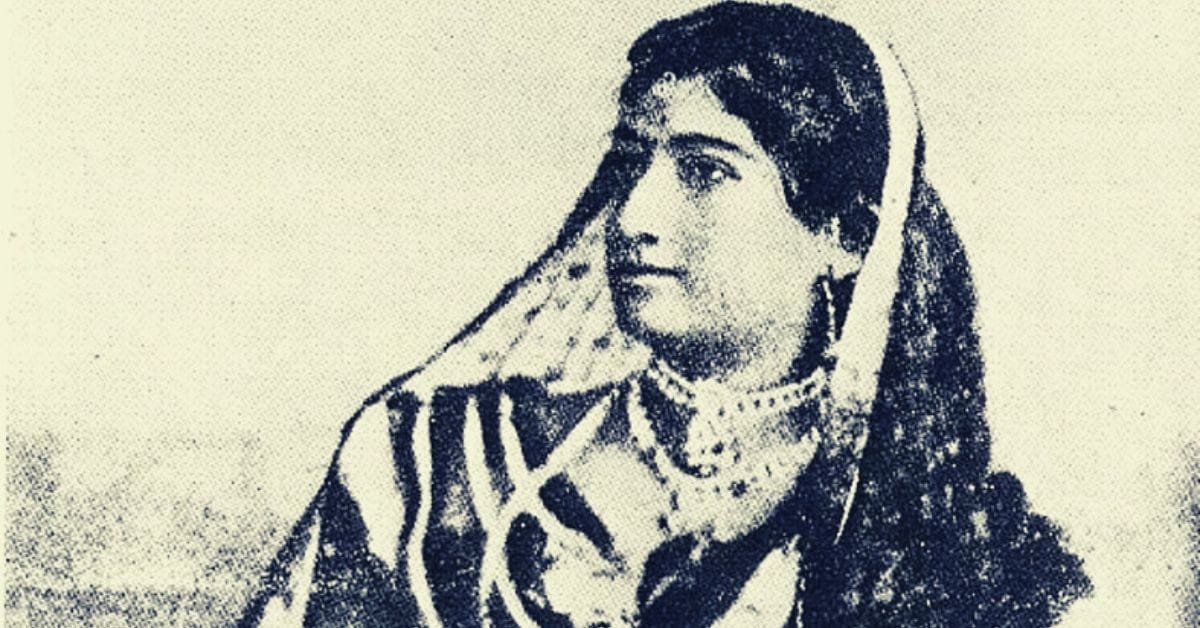Akka Mahadevi was a twelfth century (c. 1130-1160) Kannada poet, saint and mystic of the Virashaiva Bhakti Movement. The Virashaivites were social and spiritual revolutionaries in Karnataka during the twelfth century. They opposed orthodox Hinduism and its practices, for instance, caste and the system of worship through temple and priest. Their key form of communication was through vachanas or sayings which were free verse hymns in their mother-tongue. Through vachanas, the Virashaivites also rejected local folklore and classical traditions.

Image Credit: Pinterest
Akka Mahadevi is highly regarded for her vachanas, and is seen as an inspirational woman both for the history of Karnataka and Kannada literature. It is said that she was the first woman to have written vachanas in Kannada literature. The other Virashaiva saints like Basavanna, Siddharama, Allamaprabhu, etc. conferred to her the honorific term ‘Akka’ meaning ‘an elder sister’.
In her vachanas, Akka Mahadevi expressed her radical views on women’s roles, Hindu ritualism, caste, etc. and offers a testimony to the spiritual struggles faced by a female mystic in a patriarchal society. Having considered ‘Chennamallikarjuna’ (the god Shiva) as her husband in what is understood as the ‘madhurya’ form of devotion or the ‘madhura bhava’, she ends her verses with her ‘ankita’ (signature) calling Shiva as Chennamallikarjuna or as poetically translated by A. K. Ramanujan, “Lord as White as Jasmine”.
Or,
I will
give this wench the slip
and go cuckold my husband with
Hara, my Lord.
-Translation by A. K. Ramanujan
Akka Mahadevi was born in a village called Udatadi in Karnataka and was raised in a spiritual atmosphere. Her parents, Sumati and Nirmalashetty, were devotees of Lord Shiva and followed the Shaivite sect of the Lingayats. They believed in the Trividhi philosophy that comprises of Shiv Linga, Jangama and Guru, i.e., to sacrifice one’s life in service to society, aim for true knowledge and give up on worldly happiness, worshiping the Lord Shiva.
According to legends, she was a beautiful woman with long tresses and Kaushika, the Jain ruler of the region, fell in love with her. However, some accounts suggest that despite Kaushika’s proposal to marry Akka, the latter not only refused, but when forced, renounced her family, discarded her clothes and left the village covered only in her long tresses.
Also Read: The Caged Bird Who Sang: The Life and Writing of Rassundari Devi | #IndianWomenInHistory
In other versions, it is claimed that the wedding did actually take place but on the conditions that the king would neither touch Akka without her permission nor hinder her worship. However, when Kaushika failed to honour the agreement, Akka left his palace leaving behind all his presents, including her clothes and acknowledged Lord Chennamallikarjuna as her sole husband.
Don’t hold me. Don’t
Stop me. Let go
Of my hand, the hem
Of my sari
…
Guru became kin,
Linga, the bridegroom
And I, the bride
The whole world knows
…
Chennamallikarjuna is my husband,
O brother,
No one else can be my man.
-Translation by H. S. Shivprakash
Liberated from a domestic life, Mahadevi travelled to the region of Kalyana, the then capital of the Western Chalukya dynasty in the Bidar district of Karnataka in search of her beloved Chennamallikarjuna. Kalyana was the seat of eminent saint-poets of the Virashaiva sect where leaders like Basavanna and Allamaprabhu resided.
At Anubhav Mandap, Akka Mahadevi became part of the discussions centered around spiritual, social and philosophical questions but her acceptance in the movement did not come easily. She was questioned for her nakedness that exemplified a deliberate rejection of womanly modesty. It was impudent for a woman to abandon her clothes even though for saints it was a natural practice.
Also read: The Bhakti Movement and Roots of Indian Feminism
On the other hand, Allamaprabhu felt that the tresses covering her body disallowed her complete submission to the god. Mahadevi ultimately succeeded after a meticulous discourse and became part of the group. She acquired the title of Akka (elder sister) and reveled in the company of other devotees. However, later she left for Shrisailam Mountain where according to legends, with great penance and single-pointed devotion, she developed ‘nirguna bhava’ and achieved union with Chennamallikarjuna, her Lord.
I have seen the Supreme Guru Chenna Mallikarjuna
sporting with the primeval Sakti,
And saved am I.
-Translation by T. N. Sreekantaiya
Akka Mahadevi is a force to be reckoned with even now. She is remembered for her undefying faith, courage and devotion, although her rebellion is rooted within the patriarchal language and structures. Vijaya Ramaswamy reminds us to be mindful of the fact that, “Female spirituality can also be an enforced phenomenon, a diabolic outcome of patriarchal conspiracy.”
However, Akka Mahadevi is still a defiant spirit who rebelled against worldly constrictions and prescribed gender roles. Hers is a womanhood that drives away from the traditional figures of Lakshmi and Sita. Her vachanas (devotional poems), intense and sensual in nature, are a reflection of this bold and radical spirit. Akka Mahadevi did not let anything or anyone obstruct her unification with Chennamallikarjuna. Her poems portray Chennamallikarjuna as both her illicit lover and her husband.
Take these husbands who die,
decay, and feed them
to your kitchen fires!
-Translation by Ramanujam
Akka Mahadevi defies the traditional feminine images by giving expression to her desire. Besides being a mystic, seer, poet, she is also seen as a social reformer. In a time when women were not even allowed to attend school, she became part of a learned group. In many ways Mahadevi’s life mirrors that of Mirabai and much like the latter, Mirabai had to struggle with social restrictions to achieve union with her Lord. Her poetry embodies this struggle.
U. R. Anantha Murthy writes, “Akka Mahadevi is not just a 12th century memory but a force active in the writing of many women poets.” Akka Mahadevi is still a household name in Karnataka, remembered in festivals and folklore. She has also been commemorated in films, music videos and a couple of NGOs that are established in her name.
About the author(s)
An idealist who feeds on compassion, travel and good company. A film enthusiast, a poet, writer, activist and feminist.




